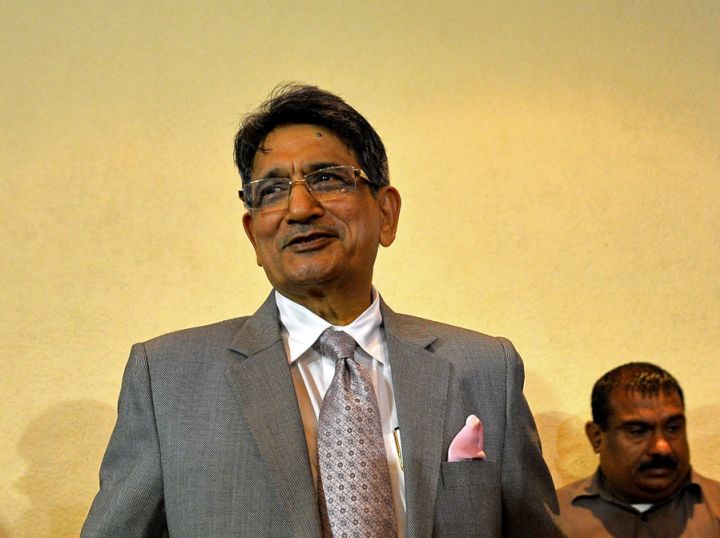BCCI governance structure a key area for Lodha panel
The six big issues within the BCCI's set-up that the Lodha panel's report to the Supreme Court could focus on

With the Lodha committee set to submit its recommendations on the BCCI's manner of functioning to the Supreme Court on Monday, the Indian board may face a radical makeover. The recommendations, which are not binding until the Supreme Court deems so, are understood to cover almost every aspect of Indian cricket with the aim of making the board a more professionally run and publicly accountable organisation.
These are some of the key areas which the three-man committee is understood to have strong concerns about and which are likely to feature prominently in its report.
Professionalism
The utter lack of transparency and accountability, the panel has observed, is a disturbing trend both within the BCCI and the state associations which form its members. It is believed that the Lodha committee will emphasise the need for professional management of the sport, not only by having the appropriate form of corporate organisation in place but also by having a clear separation between governance and management within the organisation - creating a system of checks and balances and public accountability at the same time. This may require a departure from the BCCI's current corporate structure - as a society registered under the Tamil Nadu Societies Registration Act - and a restructuring of the key leadership positions, currently 'honorary' in nature. Both have been features of the BCCI right from its inception. Changes to the BCCI's governance structure may be a key feature of the recommendations.
Conflict of interest and ethics
Given the genesis of the Lodha panel's appointment, it has quite naturally been deeply concerned by the various conflict-of-interest issues prevalent within the BCCI and state associations. It is understood that the panel met BCCI president Shashank Manohar a few months ago and has since taken note of the various measures undertaken by him on the issue of conflict of interest. Manohar had written a three-page letter, listing guidelines to avoid conflict of interest, directed at BCCI members, state associations, employees with the board and state bodies, and former and current players. Legal experts have called BCCI's move a "band-aid" measure which only further serves the powerful administrators.
Changes in BCCI's structure
It is understood that a variety of options were suggested during the consultation process and considered by the committee as potential replacements for the BCCI's current structure as a registered society in Tamil Nadu. While one option would be to reformulate the BCCI's governance and operations within its existing corporate structure, legal experts believe that the committee could also suggest more radical changes, like a public trust structure.
Managing the IPL
The committee may suggest that, instead of being run as a sub-committee, the IPL could be spun off into a separate private limited company promoted by the BCCI with an overt profit motive, (or even a section-8 company that must reinvest all its profits).
Clear definitions of management and governance
The committee is likely to suggest that the concepts of governance and management be more clearly defined and separated. Given the "public function" of the BCCI, recognised by the Supreme Court, this could involve recognition and wider representation of new stakeholders, and resulting electoral reform.
The panel's recommendations could involve doing away with the all-powerful working committee. Instead the committee may recommend a board of directors, representing various stakeholders such as players, former players, state associations and also the public. This governing body could be tasked with setting the broad agenda, setting targets and monitoring progress, and providing oversight. The Lodha committee could recommend that execution of agendas be left to paid, full-time managers.
This could mean that the committee may advise the BCCI to have a CEO, COO, a board comprising representatives of major shareholders (affiliates), and, importantly, independent directors who do not have any financial stake in the board but are representing the public interest, a constituency that has not seen representation thus far.
Criteria for state affiliation with BCCI
Having interviewed various stakeholders, including former and current administrators in the various states, the committee is likely to also suggest rationalisation of the rules and criteria for recognition of state bodies affiliated with the BCCI. This could require disbanding a number of existing voting members who have no playing record. The committee may recommend a move towards a one-state-one-body structure. It is also likely to prioritise formulation and implementation of mechanisms and practices for the BCCI to exercise oversight over its members, their structures, elections, operations and finances.
This comes at a time when a probe into the Delhi & District Cricket Association's historical functioning, seen as a bellwether for more such state-level investigations, is slated to commence in Delhi. Transparency and accountability of grants (subsidy) given to the state units could particularly be in the cross-hairs of the committee.
"If you look at the BCCI books you will probably find them quite clean and they will stand up to scrutiny. But dig deeper into the books of the affiliates and there is going to be a big black hole. You then begin to realise why honorary jobs in state associations make sense to so many. The committee will surely look to plug these gaping, leaking holes," one legal expert said.
Nagraj Gollapudi is an assistant editor at ESPNcricinfo
Read in App
Elevate your reading experience on ESPNcricinfo App.